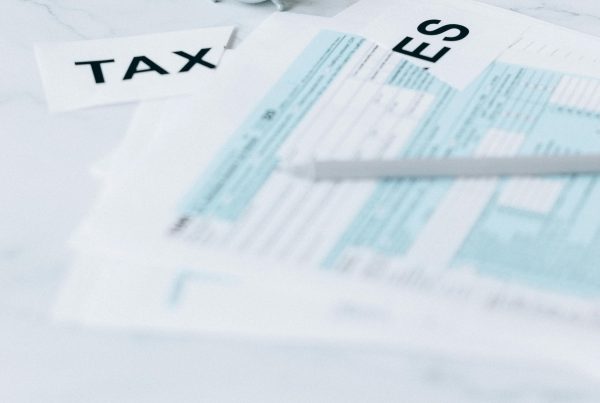Extended COVID-19 Support and Relief Measures
JobKeeper extension Bill passed
The Coronavirus Economic Response Package (Jobkeeper Payments) Amendment Bill 2020 received Royal Assent on 3 September 2020 as Act No 81 of 2020. This followed the House of Representatives agreeing to the six Government amendments passed by the Senate on 1 September 2020. Those minor Senate amendments apply to the Fair Work measures in Sch 2 of the Bill.
The changes in the Bill extend the end date of the JobKeeper scheme from 27 September 2020 to 28 March 2021, as announced by Prime Minister Scott Morrison on 21 July 2020. The Bill also amends the tax secrecy provisions in relation to JobKeeper and extends certain provisions of the Fair Work Act 2009 implemented in response to COVID-19.
From 27 September until March 2021, there will be a two-tiered JobKeeper payment:
- for the December quarter, payments will be reduced from $1,500 to $1,200 per fortnight per employee, or $750 for workers employed for less than 20 hours a week; and
- for the March quarter, payments will be $1,000 per fortnight, or $650 for workers employed for less than 20 hours a week.
The extension to the employment reference date from 1 March to 1 July 2020 has been made via statutory rules.
Fair Work amendments: 10% decline in turnover certificate
The legislation requires that an eligible financial service provider issues a written certificate that relates to a specified employer, stating that the employer satisfied the 10% “decline in turnover test” for the designated quarter applicable to a specified time.
As originally drafted in the Bill, the definition of “eligible financial service provider” included a registered company auditor, a registered tax or BAS agent (or tax (financial) adviser) or a qualified accountant.
The amendments remove registered company auditors and tax (financial) advisers from the definition. This means qualified accountants, registered tax agents and BAS agents are the only professionals who can supply the certificate. It is important to note that lawyers may not do so.
In addition, the amendments make clear that the issuing of the 10% decline in turnover certificate involves a declaration from an eligible financial service provider that relates to a specific employer and confirms that, based on the information provided, the employer satisfied the 10% test for the designated quarter applicable to a specified time. This replaces the originally drafted requirement that the provider “express an opinion”.
Coronavirus Supplement extended
The Social Security (Coronavirus Economic Response – 2020 Measures No 14) Determination 2020, registered on 30 August 2020, extends the period for payment of the COVID-19 Supplement from 25 September to 18 December 2020, but at the reduced rate of $250 per fortnight (down from $550). This measure was announced by Federal Treasurer Josh Frydenberg on 21 July 2020. A further instrument will be made to extend the COVID-19 Supplement from 19 December to 31 December 2020.
The instrument amends multiple legislative instruments that have modified aspects of the Social Security Act 1991 as part of the Government’s COVID-19 economic response. For example, the assets tests and the liquid assets test waiting period are reinstated for certain payments from 25 September 2020.
The instrument also temporarily increases the income free area to $300 a fortnight for certain JobSeeker Payment recipients for the period 25 September 2020 to 31 December 2020, and increases the partner income taper rate for JobSeeker Payment recipients from 25 cents to 27 cents for every dollar over the partner income free area. The instrument also extends to 31 December 2020 the temporary pension portability measure.
COVID-19 early release of super extended
The Treasury Laws Amendment (Release of Superannuation on Compassionate Grounds) Regulations (No 3) 2020, registered on 3 September 2020, give effect to the Government’s extension of the COVID-19 early release of superannuation up to $10,000 until 31 December 2020.
As part of the Economic and Fiscal Update in July 2020, the Government announced that it would extend the application period to allow those dealing with adverse economic effects of COVID-19 to access up to $10,000 of their super (tax-free) for the 2020–2021 year.
These regulations amend reg 6.19B(2) of the Superannuation Industry (Supervision) Regulations 1994 (SIS Regs) to allow an application via the myGov website to access $10,000 of super until 31 December 2020 (extended from 24 September). Eligible Australian and New Zealand citizens and permanent residents were also able to access up to $10,000 of their super for the 2019–2020 year by 1 July 2020.
The changes under the new regulations apply from 4 September 2020. In accordance with the original provisions, provided that a valid application is made by 31 December 2020, the ATO can make a determination to release up to $10,000 of super after the application period has expired.
Bankruptcy concessions and director liability safe harbour extended
In a media release on 7 September 2020, the Government announced that it will extend its temporary insolvency and bankruptcy protections until 31 December 2020. Federal Treasurer Josh Frydenberg said that regulations will be made to extend the temporary increase in the threshold at which creditors can issue a statutory demand on a company and the time companies have to respond to statutory demands they receive.
The changes will also extend the temporary relief for directors from any personal liability for trading while insolvent.
Background
In March 2020 the Government made a number of important changes to the Bankruptcy Act 1966 and the Corporations Act 2000 (Corporations Act) via the Coronavirus Economic Response Package Omnibus Act 2020 (the Omnibus Act). The changes were intended to provide relief from issues caused by the pandemic by way of lessening the threat of actions which could unnecessarily push companies and/or directors, as well as individuals, into insolvency and force the winding up of a business.
Statutory thresholds
The Omnibus Act increased the minimum amount of debt required to be owed before a creditor can initiate involuntary bankruptcy proceedings from $5,000 to $20,000. The statutory minimum for a creditor to issue a statutory demand was increased from $2,000 to $20,000.
Timeframes
The timeframe in which a debtor must comply with a bankruptcy notice was changed from 21 days to six months. The timeframe in which a debtor is protected from enforcement action by a creditor following presentation of a declaration of intention to present a debtor’s petition was changed from 21 days to six months.
There was also an increase to the period within which a debtor must respond to a statutory demand. The statutory period increased from 21 days to six months.
Directors’ personal liability
The Omnibus Act inserted a new provision which provides that directors have temporary relief from personal liability for insolvent trading if debts are incurred in the ordinary course of business. Directors otherwise have a duty to prevent insolvent trading.
A director may rely on the temporary safe harbour in relation to a debt incurred by the company if the debt is incurred:
- in the ordinary course of the company’s business;
- during the period starting on 24 March 2020; and
- before any appointment of an administrator or liquidator of the company during the temporary safe harbour application period.
A director is taken to incur a debt in the ordinary course of business if it is necessary to facilitate the continuation of the business. This could include, for example, a director taking out a loan to move some business operations online. It could also include debts incurred through continuing to pay employees during the pandemic.
A person wishing to rely on these safe harbour provisions in a proceeding in which unlawful insolvent trading is alleged bears an evidential burden in relation to that matter – and a new definition of “evidential burden” was inserted into the Corporations Act.
A holding company may rely on the safe harbour for insolvent trading by its subsidiary if it takes reasonable steps to ensure the safe harbour applies to each of the directors of the subsidiary, and to the debt, and if the safe harbour does so apply. The holding company bears an evidential burden in relation to these matters.
Egregious cases of dishonesty and fraud are still subject to criminal penalties. Any debts incurred by the company will still be payable by the company.
Measures extended
The measures were enacted with an intended life span of six months, meaning that they were due to finish on or around the time that the JobKeeper and JobSeeker measures were originally intended to finish, on 28 September 2020.
The end time has now been pushed back to 31 December 2020 (unlike JobKeeper, which is going to the end of March 2021).
The Omnibus Act actually amended the Bankruptcy Act (and Corporations Act) to remove references to amounts and time periods, and updated them to reflect that the statutory minimum may be changed via regulation. This means that the proposed extension will be implemented by regulation rather than by further amending legislation, removing the need to wait for Parliament to resume before the proposal becomes law.
Although the wording of the Government’s press release on the extension does not specifically address the minimum amount of debt required before a creditor can initiate involuntary bankruptcy proceedings, it is reasonable to assume that both $20,000 limits will stay in place – the release only refers to “the threshold at which creditors can issue a statutory demand on a company and the time companies have to respond to statutory demands they receive”.
Important: Clients should not act solely on the basis of the material contained in Client Alert. Items herein are general comments only and do not constitute or convey advice per se. Also changes in legislation may occur quickly. We therefore recommend that our formal advice be sought before acting in any of the areas. Client Alert is issued as a helpful guide to clients and for their private information. Therefore it should be regarded as confidential and not be made available to any person without our prior approval.



